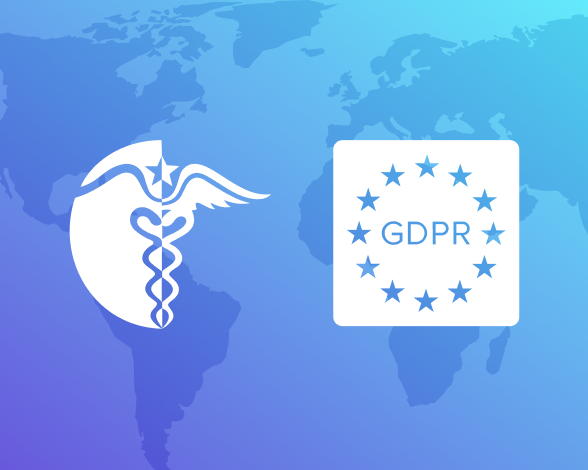CLOUD HEALTH CARE CASE STUDIES
1. DIAGNOSTIC IMAGE EXCHANGE
Use Case Scenario:
Dr. Smith, a general practitioner, examines a patient, John, who complains of persistent abdominal pain. Dr. Smith suspects that John may have gallstones and requires an ultrasound to confirm the diagnosis. Dr. Smith refers John to Radiology Clinic A, which is part of the Health Cloud network.
Impact on User and Stakeholders:
- Payers (Insurance, Finance, Govt Schemes, etc.): Health Cloud's streamlined diagnostic image exchange reduces the need for duplicate tests, leading to cost savings for payers. Insurance companies and government schemes can benefit from more efficient resource allocation and reduced claim processing time.
- Providers (Physicians, Technicians, Consultants, etc.): Dr. Smith can quickly access John's ultrasound images through Health Cloud, enabling faster diagnosis and treatment planning. Technicians at Radiology Clinic A can securely share the images with Dr. Smith, reducing administrative tasks and increasing productivity.
- Hospitals and Organizations: Health Cloud's seamless integration allows hospitals and organizations to easily share medical images, enhancing collaboration between departments and facilities. This improved communication results in better patient care and overall efficiency.
- Health Systems (Labs, Radiology, etc.): Radiology Clinic A can quickly upload John's ultrasound images to Health Cloud, ensuring that Dr. Smith has access to the information he needs to make an informed decision. This efficient image exchange process enables radiology clinics and labs to optimize their workflows and focus on delivering high-quality diagnostic services.
- Patients: John benefits from a faster diagnosis, as Dr. Smith can quickly access his ultrasound images via Health Cloud. This streamlined process eliminates the need for John to physically transport the images between providers, reducing wait times and enhancing his overall experience.
SUMMARY
2. HOSPITAL MANAGEMENT ENTERPRISE
Use Case Scenario:
Sunrise Hospital, a busy healthcare facility, needs a comprehensive solution to efficiently manage its daily operations, including patient registration, appointment scheduling, billing, and medical record keeping. Sunrise Hospital can streamline its daily processes, enhance staff productivity, and improve patient care by implementing Health Cloud's Hospital Management Enterprise Solutions.
Impact on User and Stakeholders:
- Payers (Insurance, Finance, Govt Schemes, etc.): Health Cloud's Hospital Management Enterprise Solutions help reduce errors and inefficiencies in billing and insurance claim processing, resulting in cost savings for payers. Accurate and timely billing also ensures smoother transactions and better resource allocation.
- Providers (Physicians, Technicians, Consultants, etc.): By automating routine tasks and streamlining daily operations, Health Cloud enables providers to focus on their core responsibilities, such as patient care and decision-making. This results in increased job satisfaction and a higher quality of healthcare services.
- Hospitals and Organizations: Sunrise Hospital can improve its efficiency and productivity by implementing Health Cloud's Hospital Management Enterprise Solutions. This comprehensive system helps the facility manage all daily operations, from patient registration to billing, leading to better resource utilization and enhanced performance.
-
Health Systems (Labs, Radiology, etc.): Health Cloud's Hospital Management Enterprise Solutions facilitate seamless integration with health systems, such as labs and radiology centers. This enables smooth data exchange and communication between departments, improving collaboration and healthcare delivery.
-
Patients: Patients benefit from the efficient management of daily hospital operations, as they experience shorter wait times, accurate billing, and better coordination between healthcare providers. This results in an improved overall healthcare experience and enhanced patient satisfaction.
SUMMARY
Health Cloud's Hospital Management Enterprise Solutions streamline daily hospital operations, improving efficiency, productivity, and patient care. This comprehensive system benefits payers, providers, hospitals and organizations, health systems, and patients by enhancing healthcare services' overall quality and effectiveness.
Call us now on +91-74474 333 22 or write to us at sales@cloudhealth.care.
Fill in your requirement and we will get back to you.

Precautions and Awareness for Patients and Families:
Patients and their families can take the following precautions and be aware of these points to protect their privacy and ensure ethical handling of their data:
- Understand the purpose of data collection and the potential benefits and risks associated with AI-powered medical imaging.
- Make informed decisions about whether to consent to data collection and use based on clearly understanding how their data will be utilized.
- Inquire about the data security measures at healthcare facilities and companies handling their medical imaging data.
- Educate themselves about relevant privacy regulations, such as GDPR and HIPAA, to understand their rights and protections.
- Keep track of any changes in data handling policies and practices of the healthcare providers and companies involved in their care.
What GDPR and HIPAA Say About This Topic:
The General Data Protection Regulation (GDPR) and the Health Insurance Portability and Accountability Act (HIPAA) are two key regulations governing personal and health data handling. Both regulations emphasize the importance of protecting patient privacy and securing sensitive information.

HIPAA, a US regulation, focuses on protecting the privacy and security of patients’ medical information. It sets specific standards for handling protected health information (PHI) by healthcare providers, insurers, and their business associates. HIPAA mandates secure data storage and transmission, limits the disclosure of PHI, and requires patient authorization for specific uses of their data.
Patient Rights in the Generated Data After Anonymization of Medical Health Records:
Companies and healthcare providers should exercise caution and follow best practices to ensure the ethical handling of anonymized data. This includes using anonymized data only for its intended purpose, maintaining data security, and being transparent about how the anonymized data is used.
